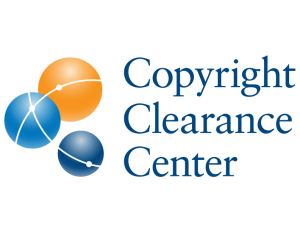Reports offer contrasting views of the future of scholarly publishing
In an otherwise quiet month for academic publishing, some newly-published reports have offered very different perspectives on the prospects for the industry.
The Academic Book of the Future
The Academic Book of the Future project, jointly supported by the Arts and Humanities Research Council and the British Library, has already played a part in the creation of two recurring events in the scholarly publishing calendar, Academic Book Week and the University Press Redux conference. Now it has also published two End of Project reports.
Of the two, it is principal researcher Michael Jubb’s report, Academic Books and their Future, that will be of greater interest to publishers, though Professor Marilyn Deegan’s Academic Book of the Future Project Report usefully describes the many strands of activity involved in the project. Jubb’s report brings together a range of perspectives – from publishers, academic libraries, and many of the various intermediaries that also populate the scholarly publishing ecosystem – to consider all the key issues: particularly, open access, discoverability, communities, formats, and economics. It then draws some wide-ranging conclusions – among them, that there are clear signs of strain in the relationships between different stakeholders within the ecosystem, and that the barriers to widespread adoption of open access in monographs are significant but not insurmountable – before recommending that a formal structure should be established to enhance dialogue between the various communities and stakeholders involved. Both Jubb’s and Deegan’s reports can be downloaded here.
Untangling Academic Publishing
Untangling Academic Publishing, ‘a history of the relationship between commercial interests, academic prestige and the circulation of research’, may make more concerning reading for publishers. Launched at the British Academy with speeches by report co-author Aileen Fyfe and David Sweeney, Executive Chair Designate of Research England (the new body taking over HEFCE’s research funding and knowledge exchange function), it aims to inform debate about the future of scholarly publishing by offering a historical perspective. Exploring the sector’s development from its early decades as a predominantly not-for-profit process subsidised by sponsors, the report notes that academic publishing had become a highly profitable and mutually-rewarding business in the years following the second world war, until the funding cuts of the 1980s saw the interests of publishers and librarians diverge as the latter found their budgets unable to keep up with the increasing cost and number of academic books and journals.
Fyfe and her co-authors conclude that the opportunities offered by new digital technologies for ‘low-cost digital circulation of knowledge on a global scale’ have not yet been taken up by the scholarly community, and that this is primarily because traditional publishers have made themselves indispensable to the ‘academic prestige economy’ central to scholarly career progression. They therefore make several recommendations as to how this situation might be rectified, proposing that the government should collaborate with other nations to develop consistent support systems for rapid and cost-effective communication of research, and that universities should revise their recognition processes to lessen their dependence on journal-level metrics, and introduce measures to ensure that the copyright in academic work is retained by its creators. Academics, they suggest, should ask themselves whether working with traditional publishers provides best value for their discipline, while learned societies should consider pooling resources and working with their peers to create a low-cost, sustainable and not-for-profit alternative publishing model. The report can be downloaded here.
Oxford ethicist joins the dots
The winner of the inaugural Nine Dots Prize, supported by the Kadas Prize Foundation, Cambridge University Press, and the Cambridge University Centre for Research in the Arts, Social Sciences and Humanities (CRASSH), has been announced. Seeking to reward original thinking in response to contemporary societal issues, the prize asked for responses to the question, “Are digital technologies making politics impossible?”. Winner James Williams, a 35-year-old doctoral candidate researching design ethics at Oxford University, will receive US$100,000 to write a short book expanding his ideas, which will be published by Cambridge University Press next May.
New director at Princeton
Princeton University Press, whose European office is based just outside Oxford, has announced a new director to succeed the retiring Peter Dougherty. Christie Henry, formerly editorial director for sciences, social sciences, and reference at the University of Chicago Press, will start work on September 1st.
Alastair Horne writes our Academic Newsletter.

Alastair Horne is a PhD student
at the British Library and Bath Spa University.
He writes our Academic Newsletter.

The Academic Newsletter is sponsored by The Copyright Clearance Center.
Copyright Clearance Center (CCC), with its subsidiaries RightsDirect and Ixxus, is a global leader in content workflow, document delivery, text and data mining and rights licensing technology for thousands of publishers, businesses and academic institutions. CCC’s solutions provide anytime, anywhere content access, usage rights and information management while promoting and protecting the interests of copyright holders. CCC serves more than 35,000 customers and over 12,000 copyright holders worldwide and manages more than 950 million rights from the world’s most sought-after journals, books, blogs, movies and more. The company has locations in the US, the UK, the Netherlands, Spain, Romania and Japan.

